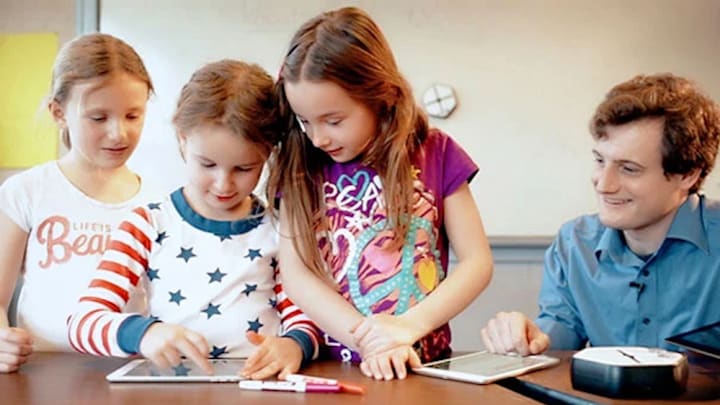Today's children are more in tune with technology than any generation that came before them. But when it comes to learning the language of computers, it's hard to make lines of HTML feel as exciting as the games they program. That's where Root comes in.
According to the Harvard Gazette, Root is a mobile, programmable robot developed by researchers at Harvard's Wyss Institute for Biologically Inspired Engineering. Using a tablet app, kids write "code" for Root and watch how different commands translate to the robot's actions in real life.
The compact, hexagonal device uses magnets and sensors to drive over the face of a whiteboard like a Roomba. A dry-erase marker inserted into its center allows the robot to draw different shapes based on how it's programmed. By introducing programming concepts and problem-solving skills to children, the designers hope to lay the foundation they'll need to tackle more advanced tasks down to the road.
Young beginners aren't the only ones Root is designed for. The app can be adapted to fit a range of skill levels, starting with a code language that uses pictures and simple actions leading up to actual Java Script for intermediate students.
The developers of Root are currently working towards building a curriculum around the robot and getting it into a real-life classroom. The majority of schools still don't teach coding to their students, but kid-friendly technologies like Root could help change that. And with computer skills already essential for nearly 80 percent of mid-level jobs, this is one lesson kids can't afford to miss out on.
[h/t Harvard Gazette]
